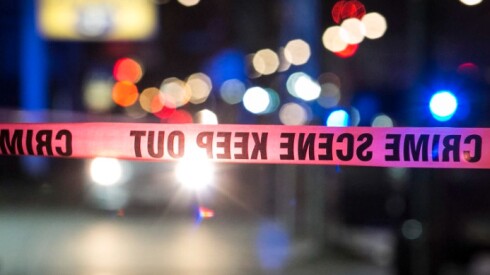The region’s public transit system is beset by assorted problems these days, including crime, dependability issues and a general lack of cleanliness.
Now, add one more thing to that list: a staggering $730 million-a-year budget gap that could start hitting the Chicago Transit Authority, Metra and Pace beginning in 2026, according to the Regional Transportation Authority.
It’s easy to see how we got here. Ridership across the system has been down significantly since the start of the pandemic nearly three years ago. And the $3.5 billion in federal COVID funds designed to keep the three local transit agencies afloat will run out in 2025.
But if there’s a bright spot to be found, it’s that the impending fiscal cliff now requires us — all of us in Chicagoland — to seriously rethink public transportation and how it’s funded.
This is why the RTA’s newly released master plan, Transit is the Answer, is worth a look. Among other things, the document offers a proposed transit budget and 11 possible solutions for solving the fiscal crisis.
And perhaps most importantly, the RTA seeks public comment on the plan until Jan. 9.
This editorial board urges everyone to take advantage of the opportunity to comment. Public transportation is a vital resource for the region, linking millions of riders a day to jobs, schools, entertainment and more — and it needs the funds necessary to be maintained and improved.
Investing in the region’s future
Supporting the area’s transit network will require hard, expensive, but smart choices.
The RTA proposes 11 funding options to generate more money for the system. One choice is to increase the RTA’s portion of the sales tax in Cook County and the collar counties by 0.25%. The tax currently stands at 1.25% in Cook County and 0.75% in the surrounding counties.
Another option is to increase the state’s motor fuel tax by 5 cents per gallon, with the increase set aside for transit costs.
Some proposed solutions might be tougher pills to swallow.
For instance, we’re not fans of the idea of congestion pricing — charging tolls on currently free expressways leading into Chicago. The move might generate income, but it risks doing so on the backs of drivers who are forced to drive because they live in public transit deserts.
But something has to be done, and putting as many options on the table while letting the public weigh in is a wise move. None of the 11 proposals by itself can fix the fiscal crisis, but it could happen through a mix of solutions.
Transit officials should keep this in mind: The problem cannot — should not — be solved solely by raising fares or slashing services. Doing so would bring in revenue or save some bucks in the short term, but will ultimately weaken the system by driving away riders and make it less useful to customers — and the region.
“We see transit as the answer to the economic viability of our region and to addressing many of the most urgent challenges facing us today,” RTA Board Chairman Kirk Dillard said in a news release. “Transit is the answer to concerns around equity, economic prosperity and climate mitigation and investing in transit is an investment in solutions for our region’s future.”
Make your voice heard
It took 10 years and $800 million to straighten out — we hope — the recently completed makeover of the Jane Byrne Interchange west of downtown.
If nothing else, it shows once again that the state is willing to find the funds and invest heavily in asphalt and concrete, to serve cars and trucks.
To do otherwise — and let the interchange crumble away — would’ve been unthinkable. Public transit deserves the same commitment.
The RTA is scheduled to vote on the Transit is the Answer plan at its Feb. 16 meeting.
The vote, which could impact the region for years to come, is too important to be made in a vacuum. Make sure your voice is heard.
Send letters to letters@suntimes.com
The Sun-Times welcomes letters to the editor and op-eds. See our guidelines.




